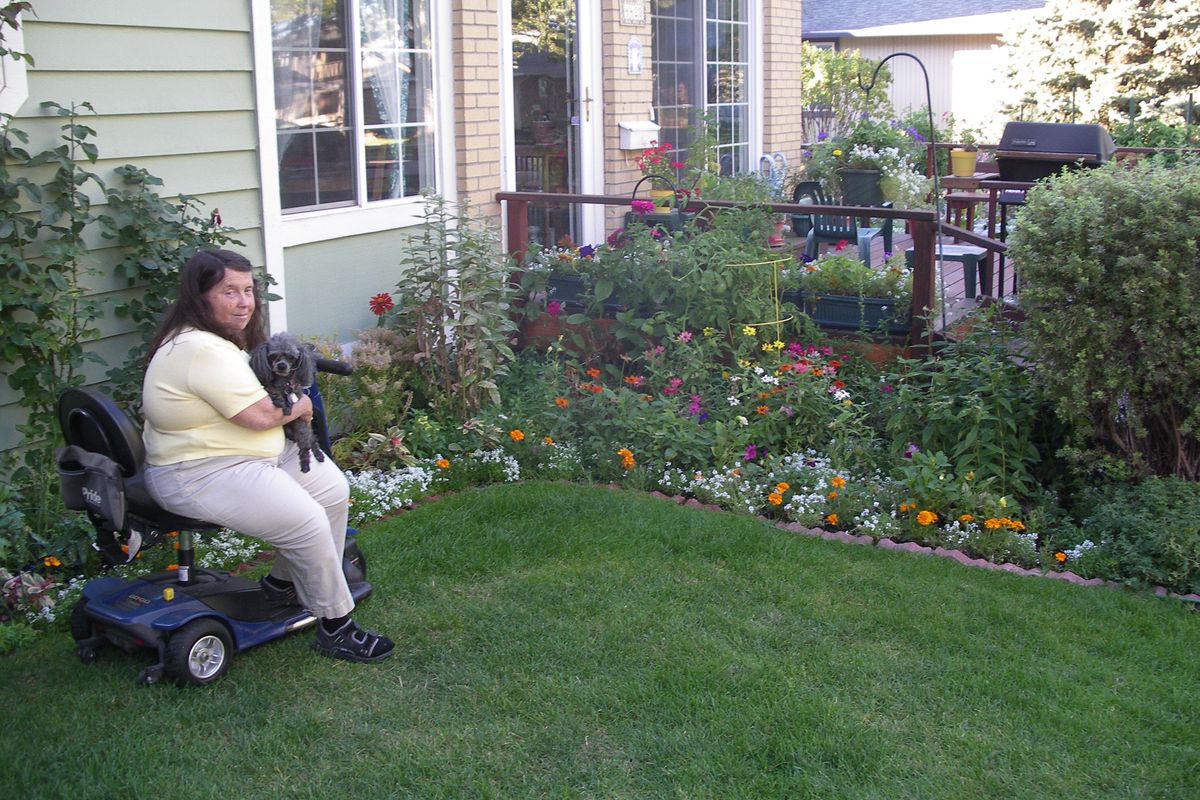Award-winning garden theraputic for its owner

Jude Cormier has been a gardener for as long as she can remember. Growing up on a Montana ranch, she helped her family grow the vegetable garden that kept them supplied with fresh produce well into the winter. “It was just a part of life for us,” she said one day last week as we wandered around her small but lush garden on the South Hill. She had just been awarded the September Garden of the Month by the Inland Empire Gardeners.
Cormier’s garden is wrapped around her small condo and what she lacks in space she has made up for by building a garden full of color and an ever-changing mix of annuals, perennials and vegetables. She mixes her vegetable plants with annuals and perennials not only for the fruits they provide but also for the ornamental quality of their leaf color and shape. The north side of her house has a lovely collection of rhododendrons, ferns and hosta that thrive in the shade. Around the front of the house where there is full sun she grows a wide variety of annuals like snapdragons, zinnia, marigolds, and sweet alyssum among roses, Asiatic lilies, tomatoes and yarrow. On her deck are a couple of dozen pots of herbs, many of which she takes indoors for the winter.
The unusual thing about Cormier’s garden is that she has disabilities that make it a challenge to get around and work in the garden. She is part of a growing community of people with disabilities who have found gardening is a great way to maintain mobility, get regular exercise and enjoy the outdoors.
This practice is known as horticultural therapy, a fast-growing field dedicated to using the act of gardening for physical rehabilitation. Medical professionals across the country are turning to horticultural therapy to help patients regain mobility, motor and cognitive skills after strokes, accidents and other conditions. Many experts feel that the activity combined with getting patients outdoors and into social settings can help reduce recovery times and help maintain their health in the long run. Locally, St. Luke’s Rehabilitation Institute uses horticultural therapy to help patients regain their motor and cognitive skills in a large outdoor garden at the facility.
Cormier has been gardening at her condo since 1996 and has learned to adapt her gardening so that she can do most of her activities from her scooter. She has long-handled, lightweight tools that let her reach into the back of her beds. She adapted the basket on her scooter so she can carry hand tools. She uses small, lightweight plastic buckets she can tow behind the scooter to collect garden debris. When she needs to get into a bed she uses a small, sturdy table to help her walk and then give her a place to sit and rest.
“My physical therapist says this is the best thing I could do for myself,” she said. “I can’t imagine doing anything else.”